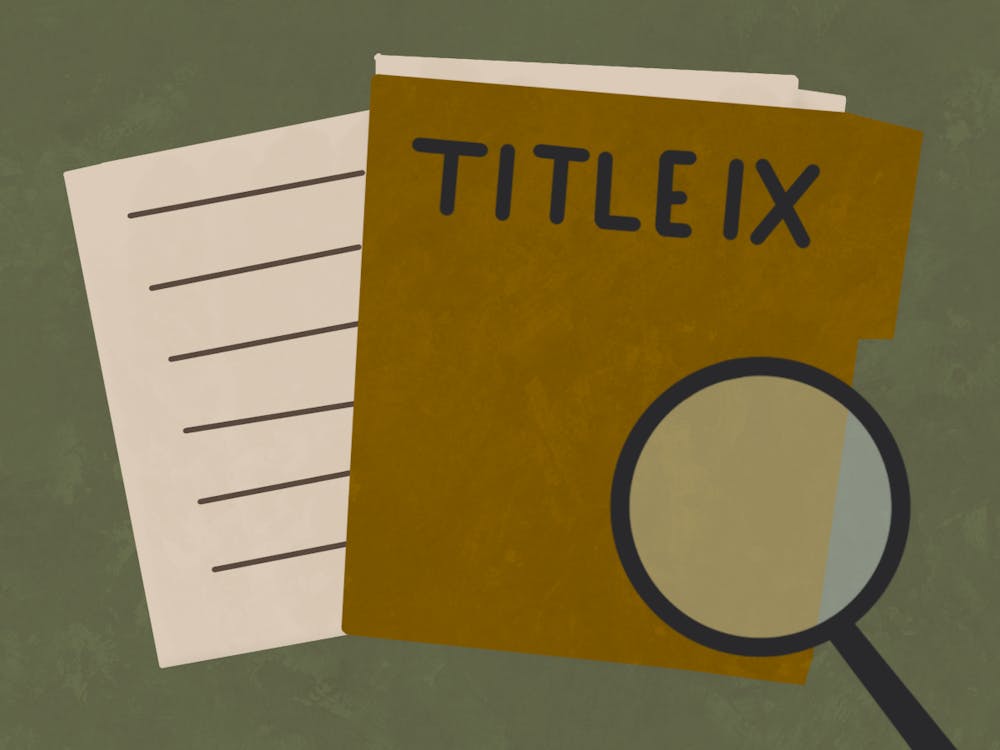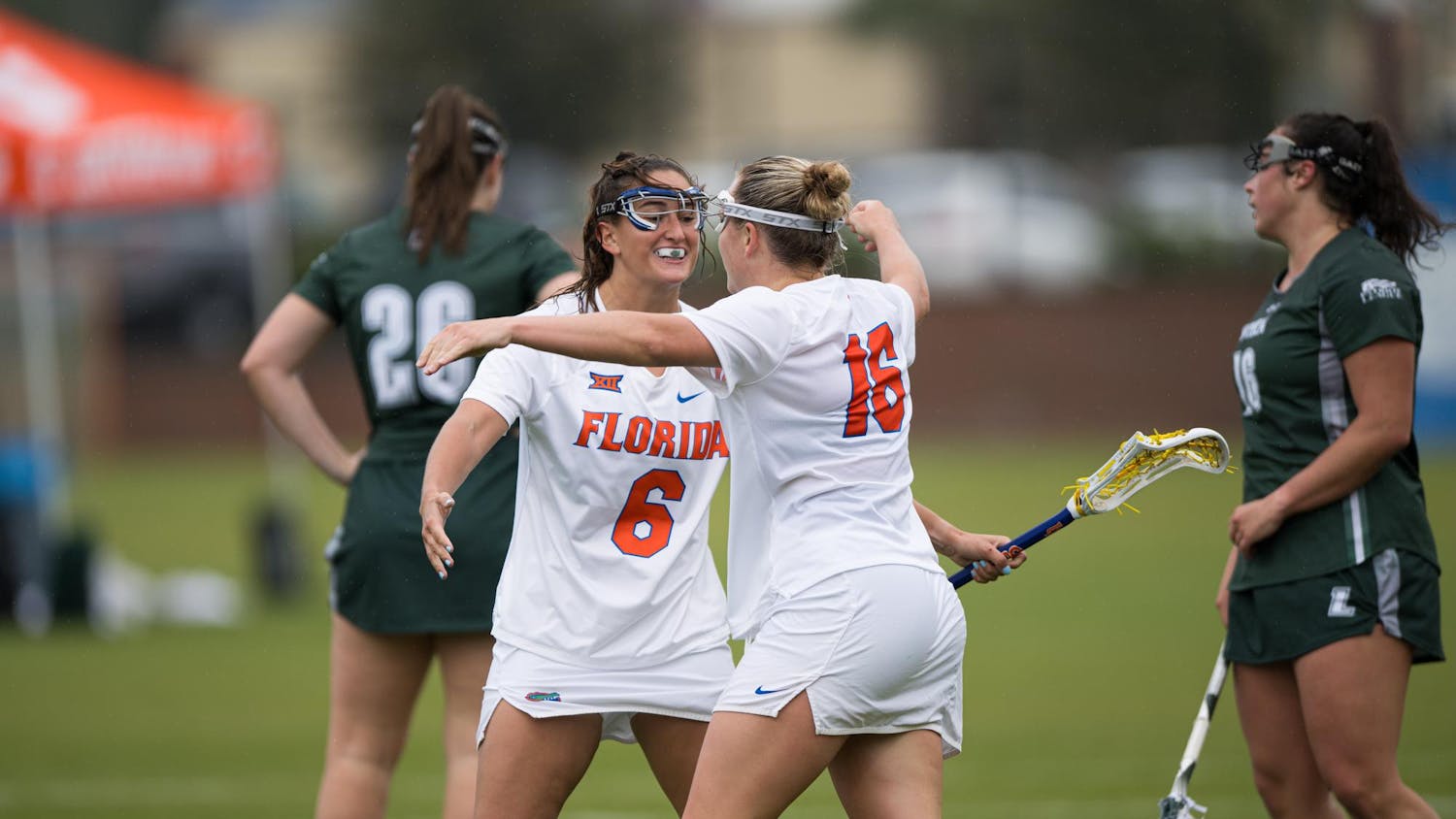After Florida’s men’s basketball head coach Todd Golden was accused of sexual harassment and stalking by an unreleased number of women, the university investigative process is still unfolding.
Golden’s case was classified as a Title IX investigation, and the university received a formal Title IX complaint Sept. 27.
Title IX encompasses gender discrimination, sexual assault and harrassment, stalking and domestic violence, among other protections. A complaint can be filed by a student or faculty member, including at UF’s athletic programs. Title IX proceedings consist of several sections and can be complex or prolonged depending on the case.
What is Title IX?
Public upset over a lack of athletic, extracurricular and enrollment opportunities for women pursuing higher education peaked in the 1970s. The federal government officially established Title IX in 1972 to prevent federally funded institutions from discriminating against students and employees based on sex.
Title IX’s reach has since expanded. The Office of Civil Rights, which oversees Title IX enforcement, issued its first official guidance on sexual harassment in 2011.
Howard Kallem, who worked in OCR’s office for more than 20 years, was involved in the decision to include sexual harassment under the umbrella of sexual discrimination.
“Sexual harassment, broadly, is an unwelcome conflict of sexual nature that interferes with a student’s or an employee's ability to participate in their education or to do their jobs,” Kallem said.
Since Title IX’s conception, universities across the country are required to have at least one designated Title IX coordinator. Kallem served as the Title IX coordinator at the University of North Carolina for one year and Duke University for five years.
Title IX’s applications to universities are not entirely uniform, Kallem said. Larger institutions often have more than one employee with Title IX responsibilities, while at smaller universities, the Title IX coordinator might be balancing multiple university roles.
UF outsources its head Title IX consultant, who works remotely from New York, from the company Grand River Solutions. A representative from Grand River Solutions declined to provide comment to The Alligator.
Complainants have the option to file their case with the university and follow local procedures or directly through OCR. If the results of a university decision are not to the complainant’s satisfaction, they can file a follow-up case with OCR.
What does an investigation look like?
While Title IX complaints can be filed against anyone, there are separate processes when investigating a student versus a faculty member. Gainesville criminal defense lawyer Dean Galigani, who has defended dozens of students accused of Title IX violations, said the majority of cases he’s dealt with involve accusations of sexual harassment or battery.
In a student case, the first step is for the Title IX investigator to speak to the complainant, Galigani said. The complainant tells their side of the story and provides any physical evidence they might have, which usually includes witness testimony, text messages or emails.
Then, the Title IX investigator speaks with the accused, who can also provide evidence and witnesses. However, most cases have a notable lack of physical evidence, Galigani said.
“The majority of them are one person’s word against another,” he said.
After all evidence has been gathered, the Title IX investigator compiles a report to send to the UF Office of Student Conduct & Conflict Resolution, which decides whether or not to proceed with charges against the accused student. Galigani has never had a case where UF chose not to proceed with a student conduct violation, he said.
The case then proceeds to a hearing, where a Student Conduct Committee decides whether the student is guilty of a conduct violation. All of Galigani’s cases have resulted in the accused being found not guilty, he said.
One of the biggest faults with UF’s Title IX process is that it’s slow, Galigani said. From start to finish, a student case normally takes between six months and a year to be resolved. Investigations are required to have time limits set at the beginning of the process, though they often run much longer, Galigani said.
“I’ve had them take months and months longer than they say they’re going to,” he added.
If faculty are accused of Title IX violations, they do not face suspension or termination while the investigation is ongoing, Kallem, the former OCR employee, said.
In a faculty case, the Title IX process is the same up until the investigation’s completion. Once an investigation has ended, Title IX cases involving a faculty member go to the individual’s respective department or college and UF human resources. The department head and UFHR then decide whether disciplinary action against a faculty member should be taken.
Advocating for complainants
Elizabeth Tang, a senior counsel at the National Women’s Law Center, said understanding Title IX regulations can sometimes be difficult and students may not be aware of what protection and stability they have access to, especially with statute changes.
Tang’s work has focused on opposing Donald Trump’s Title IX regulation and pushing for the best version of the statute under the Biden administration, which was issued in August. Federal courts issued several preliminary injunctions against Biden’s 2024 Title IX regulations, which means states not covered by the injunctions must incorporate Biden’s plans into their Title IX processes, but states covered by an injunction cannot adopt the Biden regulations and must stick with Trump’s 2020 regulations.
Biden’s revised statute did not reach Florida schools, and they currently still operate under Trump’s 2020 regulation.
The Trump administration’s Title IX rules looked to narrow down the definition of sexual harassment to not interfere with free speech or academic freedom, according to the Department of Education; Biden’s administration revised the statute in 2022 and aimed to broaden sexual harassment’s implications.
“I think they really set us back,” she said. “They drastically narrowed schools’ responsibility to address sexual harassment.”
Tang stressed listening to students and treating every case with the same importance, values she believes were clouded by Trump’s policies. Despite universities being given the discretion to create non-Title IX policies to address sexual harassment, not all schools have taken that approach.
“That's where it's so important for the federal government to set what the floor is because a lot of schools are just going to do the minimum of what the floor requires,” she said.
Tang emphasized students be aware of supportive measures, which are non-punitive services helping students or employees who have experienced harassment.
An example would be a student feeling distressed from a classroom where they may have experienced harassment and being excused from that environment to learn in another classroom, Tang said.
The services aim to help the individual continue their studies or work, while also protecting the safety of all parties and deterring misconduct.
Rachel Newman, a 20-year-old advocate with the nonprofit Advocates for Youth, has found meaning in her work with the student- and survivor-led project Know Your IX. Newman, who attended New College of Florida as a freshman, went through a Title IX case she recalls as “emotionally, physically and academically taxing.”
Her experience led her to realize how ambiguous case development could be; she didn’t feel help was easily accessible to her, and she put the weight on her shoulders to find guidance. “When I saw how non-accessible it was, I wanted to get involved in activism that would help support survivors in terms of education [and] how to navigate that,” she said.
Some of Newman’s work consists of breaking down the investigative process, making students aware of their rights and offering a safe, comfortable platform for people to turn to. She believes people must take time to learn about their rights, especially with new federal regulations trickling in.
“With the threats of abolishing the Department of Education, there might even be more of a feeling of, ‘Well, if we aren't super compliant, nobody's going to come after us anyway,’” she said.
While universities are not permitted to punish respondents during an ongoing investigation, institutions are expected to implement supportive measures for both parties. Discourse surrounding the fairness of investigations for both the respondents and complainants remains prevalent.
If, Kallem — the former OCR employee — added, that one of the two parties involved is expected to change housing locations, who is responsible for relocating?
“These grievance procedures for sexual harassment have morphed into these quasi-courtroom processes with investigations that can take a long time,” Kallem said.
Contact Sophia Bailly, Kylie Williams and Nicole Beltran at sbailly@alligator.org, kyliewilliams@alligator.org and nbeltran@alligator.org. Follow them on X @sophia_bailly, @KylieWilliams99 and @nicolebeltg.






